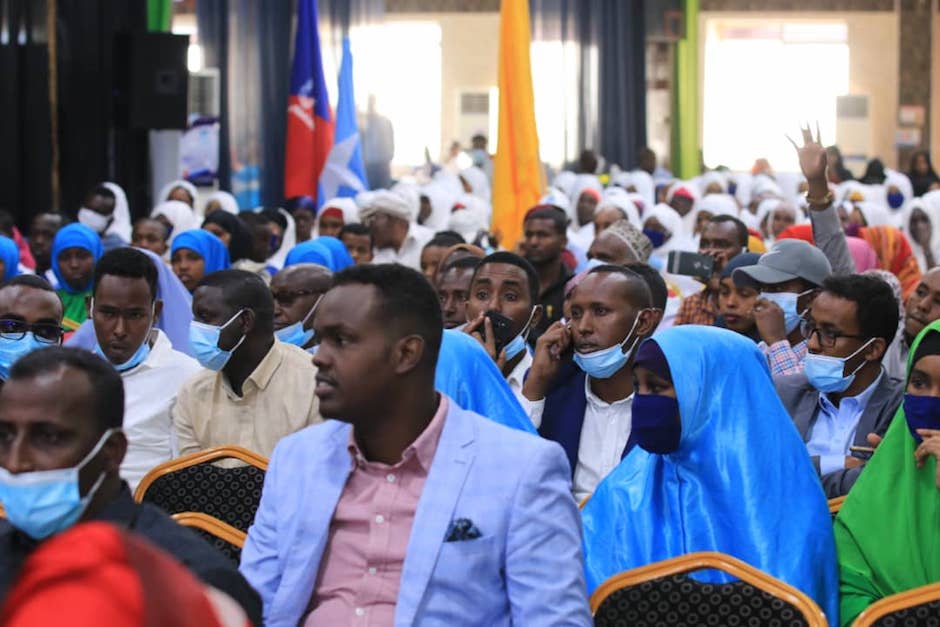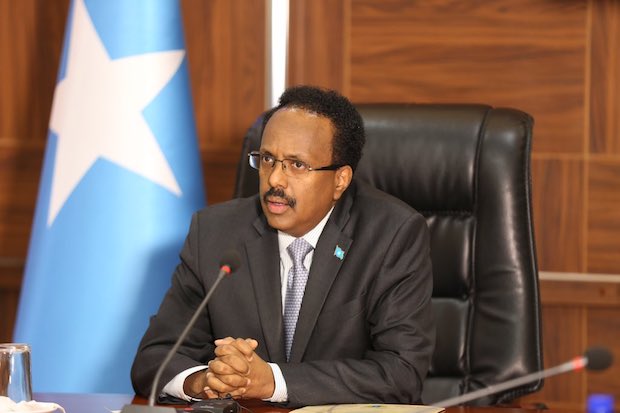“With no support from government or society, Covid-19 has hit Somali Christians harder”
“Most Somali Christians are underground believers. We are a persecuted community”, explain the leaders of an online community of believers in the country.
Protestante Digital · MOGADISHU · 25 FEBRUARY 2021 · 17:21 CET

Somalia lives in a continuous crisis. It had to declare a state of emergency in February 2020, in the face of a locust plague that wiped out thousands of crops.
The United Nations Food and Agriculture Organisation (FAO) has published a report estimating that “up to 2.7 million people across Somalia are expected to face food consumption gaps or depletion of livelihood assets”.
The national government has just asked the international community for nearly 900 million Euros to help the more than 4 million people who will need humanitarian aid this year.
At the same time, the mandate of the current President, Mohammed Abdullahi, better known as 'Farmaajo' because of his fondness for cheese, expired on 8 February and he has postponed elections sine die.
Since then, opposition leaders do not recognise his authority and the UN has urged the country's political leaders to engage in dialogue in order to hold the elections.
“Growing political tensions threaten Somalia’s state-building progress and even security, unless they are resolved through dialogue and compromise in the interest of the country”, pointed out the UN Secretary-General’s Special Representative for Somalia, James Swan.
Some regions, such as Jubaland, Puntland and Somaliland, are effectively operating as independent governments, with a strong presence of the Al Shabaab jihadist terrorist group, which, according to the Armed Conflict Location and Events Data (ACLED) project, has killed at least 4,500 civilians in the country since 2010.
Growing tension with neighbouring Kenya
In addition to all this, Somalia is also having problems with neighbouring Kenya and, although the coronavirus pandemic has caused just over 6,000 infections and 200 deaths in the country, there is little prospect of vaccination in the short term.
“There has been tension between Kenya and Somalia in recent years”, tells Spanish news website Protestante Digital Abdi Duale and Kawser Omar, two Somali evangelical Christians authors of 'Community of Somali Believers', one of the few websites that shares Bible content and evangelistic messages in Somali.
They explain that “one unresolved issue is the long-running territorial dispute over a stretch of the Indian Ocean claimed by both nations that is believed to hold valuable oil and gas deposits. Somalia took Kenya to the International Court of Justice, and the arbitration process on the issue is still ongoing”.
At the same time, the “Kenyan army is also part of AMISOM (African Union Mission In Somalia), so it has substantial political leverage in Somalia. Somalia's central government is not strong and relies on AMISOM”.

Regional conflicts
Last December, barely a year after the two countries partially normalised relations following tensions over their maritime border in November 2019, the Somali government announced the cessation of diplomatic relations with Kenya, after the President of the self-proclaimed Somaliland state, Muse Bihi Abdi, visited Nairobi to meet with senior Kenyan officials.
“There are always political disagreements between the regional governments and the state. One of these regions is Jubaland state, bordering Kenya. Somalia usually accuses Kenya of using that state to put pressure on it”.
“As tension has escalated, the Kenyan government moved closer to secessionist Somaliland in the north, and started closer relations with it, including the exchange of consulates; something that has never happened before”, point out Duale and Omar.
According to the Somali evangelicals, “part of the problem is the political infighting within the Somali government. The sitting president accuses Kenya of supporting the regional governments that oppose him and other opposition parties”.
“Kenya still hosts some 200,000 Somalis living in refugee camps in Kenya's east. There is a robust Somali business community in Nairobi and the cross border business exchanges have been negatively affected by the political tension”, they add.
The latest data from the Observatory of Economic Complexity in 2018, show that Kenya was the main destination for Somalia's exports within Africa, accounting for 1.7% of Somalia's total exports. At the same time, it is the first African country from which Somalia imports products such as rolling tobacco or sugar cane.
“It is unlikely that a war breaks out, but, in addition to the problems already mentioned, Al-Shabaab extremists will also use this political issue to their advantage by carrying more attacks in both countries”, warn Duale and Omar.
Christian persecution in Somaliland
The creators of 'Community of Somali Believers' stress that “the political tension between Kenya and Somalia is not causing a real hatred between ordinary Kenyans and Somalis”.
“People realize it is based on political differences between the two administrations and not on religion or ethnicity. There are still many Kenyan Christian professionals working for international NGOs or as teachers working in the Somali populated areas”.
However, they have identified growing hostility against Christians is in the Somaliland region, which, after the self-declared independence in 1991, is a secular Muslim country with no tolerance for extremism. Christian presence is tolerated as long as it is useful to its development and is not proselyting”, explain Duale and Omar.
They denounce that “on September 21, 2020 two Somali Christians were arrested in Hargeysa, capital of Somaliland. Awaale and his wife Muna were charged with apostasy from Islam and spreading Christianity. They have three children, including a two-month baby”.
Furthermore, “at least nine Somali Christians have fled to neighboring Ethiopia and there are reports of others being arrested recently. Awaale and Muna have been released and brought to Ethiopia for safety, but on 23 February, 2021 another couple was arrested and they are still in prison”.
“We don’t really know the reason for the sudden upsurge of the persecution, but the Somaliland authorities issued a video, saying: `Whoever dares to spread Christianity in this region should be fully aware that they won't escape the hand of the law enforcement officers and that the spread of Christianity will not be allowed and is considered blasphemy”, they add.
“Most Somali Christians are underground believers”
The country has been at the top of the Open Doors World Watch List for years. In its latest edition, it once again ranks third among the countries where Christianity is most persecuted in the world.
Despite the fact that, according to the Joshua Project, 99.6% of the population identifies as Muslim and only 0.3% as Christian, of which 0.01% are evangelicals, “Covid-19 has hit Christians harder than Muslims”, say Duale and Omar.
“Most Somali Christians inside Somalia are underground believers. We are a persecuted community with no support from either the government or Somalis society”, underlined.
However, “the relationship between the small number of Somali Christians and Christians from the neighboring countries is good. Several Somali Christians who were persecuted found haven and support in either Kenya and Ethiopia, and there are what you may call Christian fellowships in Ethiopia, Kenya, and Djibouti”.
Duale and Omar call on Christians to “pray for the sudden persecution of the Somali Christians in Somaliland to stop, and that those who are in prison would feel the unique presence of the Lord and get their freedom back soon”.
“Pray that more Christians in the world become more aware of the blight of Somali Christians in Somalia and neighboring countries, and would take an initiative to support them spiritually and materially”, they concluded.
Published in: Evangelical Focus - world - “With no support from government or society, Covid-19 has hit Somali Christians harder”
